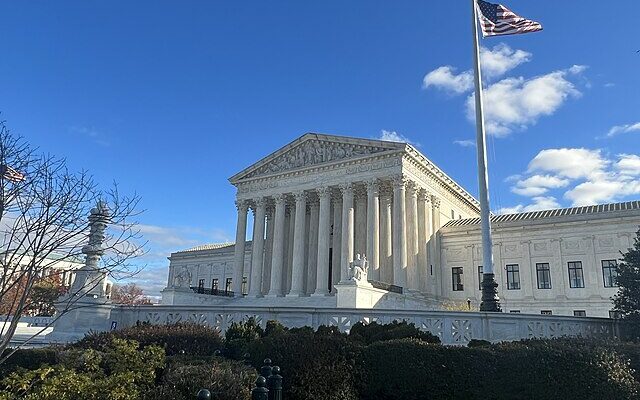
A landmark Supreme Court case may soon reshape the boundaries of digital privacy in the United States, potentially redefining whether Americans have a constitutional right to protect their personal data stored with third-party companies from warrantless government access.
The case, Harper v. O’Donnell, stems from a legal challenge filed by New Hampshire resident Jim Harper, who claims the Internal Revenue Service (IRS) violated his Fourth Amendment rights by secretly seizing his digital financial records—without a warrant. Harper learned the IRS had obtained details of his cryptocurrency transactions through Coinbase, a popular crypto exchange, as part of a sweeping investigation involving over 14,000 users.
Harper, who says he used Coinbase, only discovered the intrusion after receiving a notice falsely accusing him of underreporting crypto income. The IRS had accessed highly sensitive information, including transaction logs, wallet addresses, and public keys—tools that enabled continued monitoring of his financial behavior.
In his lawsuit, Harper argues that the data collected by Coinbase should be considered his private property, shielded by the Constitution from warrantless government searches. He references Coinbase’s own terms of service to assert his ownership over the digital information, challenging the legal precedent that enabled the IRS to bypass typical legal channels.
At the heart of the case is the controversial “third-party doctrine,” a legal principle dating back to the 1970s. It asserts that individuals relinquish their expectation of privacy—and thereby Fourth Amendment protections—once they share information with a business. Lower courts cited this doctrine in dismissing Harper’s claims.
However, critics argue the doctrine is outdated in an era dominated by digital communication, where vast amounts of personal information are stored online. They say the rule has become a legal loophole, allowing government agencies like the IRS to conduct broad surveillance without judicial oversight.
This case could be a constitutional reset, wrote Reason. It’s not just about cryptocurrency—it’s about the broader question of whether Americans retain control over their digital identities.
“Today, when nearly every aspect of our lives is stored and synced through digital intermediaries, the doctrine has become a gaping loophole for mass surveillance. Financial regulators, in particular, are eager to exploit this loophole to vacuum up Americans’ financial records without a warrant.
Harper’s case attempts to bring digital records back within Fourth Amendment protections. The Constitution protects our property, and the Supreme Court has long recognized that seizures of personal property require legal justification. When judges review digital surveillance, the first question they must ask is not whether data were shared with a third party, but whether the records belong to the person who created those records.
Ownership doesn’t vanish because you entrust something to another party. Paper records stored in a safe-deposit at a bank still belong to you—and the government can’t rifle through it without a warrant. Digital records deserve the same treatment.”
Recent state-level rulings support this evolving interpretation. In 2023, the Colorado Supreme Court found that Google users maintain ownership over their search history and online data, offering a potential blueprint for federal courts.
The case also highlights growing calls for congressional action. Legal experts have urged lawmakers to revise the 1986 Stored Communications Act, which still permits warrantless access to digital records over 180 days old. Tech companies and state legislatures may also play a role by reinforcing user rights through clearer service agreements and data ownership provisions.
As the Supreme Court prepares to hear the case, Harper v. O’Donnell stands as a defining moment in the fight over digital privacy. Its outcome could establish whether the Constitution’s privacy protections extend into the cloud—and whether Americans truly control their data in the digital age.
[Read More: UN Facing Major Funding Crisis]











